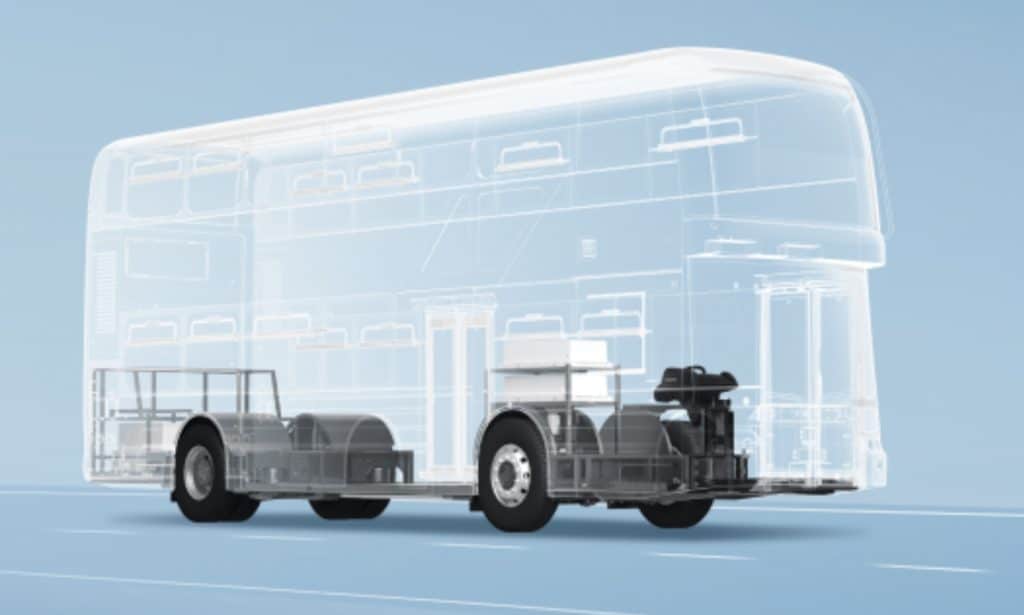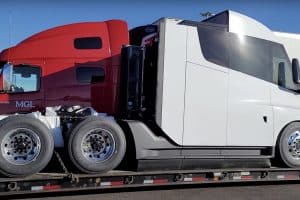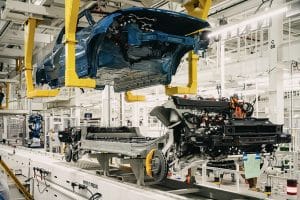- 🇨🇳 Chinese automaker BYD has unveiled an electric double-decker bus for the UK called BYD BD11.
- 🚌 The BYD BD11 was revealed at the London Bus Museum and customized for the UK market.
- 🌍 The bus is part of BYD’s commitment to eco-conscious public transportation and aims to reduce air pollution in London.
- 🔋 The BD11 features BYD’s Blade Battery, offering increased range and fast charging capabilities.
- 🚫 Earlier this year, BYD phased out pouch-type batteries due to potential durability issues.
- 🪫 BYD plans to replace pouch-style batteries with prismatic batteries called “Short Blade.”
- 🔧 In February 2024, BYD licensed its LFP battery cells to BorgWarner, a supplier for major automakers like Ford, GM, and Stellantis.
- 🇪🇺 BYD Europe aims to compete against big EU automakers, including Volkswagen and Stellantis, and hopes to rival Tesla.
In a significant move towards green public transportation, Chinese automaker BYD has unveiled its electric double-decker bus called the BYD BD11. Designed specifically for the UK market, this innovative vehicle aims to play a pivotal role in reducing air pollution and supporting London’s carbon neutrality goals.


Introducing the BYD BD11
Launched at the iconic London Bus Museum, the BYD BD11 has been meticulously customized for the UK market. This electric double-decker bus exemplifies BYD’s commitment to technological innovation and its mission to lead the global transition towards eco-conscious public transportation.
Key Features of the BYD BD11
- Eco-friendly Design: A key component of BYD’s strategy to reduce air pollution in metropolitan areas.
- Advanced Battery Technology: Equipped with BYD’s proprietary Blade Battery, which offers enhanced range and rapid charging capabilities.
The Role of the BD11 in UK’s Green Transportation Goals
BYD UK Commercial Vehicles’ managing director, Frank Thorpe, emphasized that the BD11 would be instrumental in achieving London’s air pollution reduction targets and contributing to the wider carbon neutrality goals across the UK. The incorporation of the Blade Battery, known for its durability and efficiency, reflects BYD’s commitment to offering reliable and sustainable solutions.
Advancements in Battery Technology
Earlier this year, BYD began to transition away from pouch-type batteries due to potential durability concerns and leakage risks. This paved the way for the adoption of prismatic batteries, known as “Short Blade,” which are expected to offer similar benefits to the Blade Battery in terms of safety and performance.
The Broader Implications for the Auto Industry
BYD’s ambitions are not confined to the UK alone. BYD Europe has set its sights on challenging major European automakers, including Volkswagen and Stellantis, and even aims to compete with Tesla. This bold approach underscores BYD’s intent to establish itself as a key player in the global electric vehicle market.
Significant Developments in BYD’s Battery Strategy
- Licensing LFP Batteries: In February 2024, BYD licensed its lithium-iron-phosphate (LFP) battery cells to BorgWarner, a major supplier for Ford, General Motors, and Stellantis. This move indicates BYD’s growing influence in the automotive supply chain.
- Replacing Pouch-style Batteries: The shift to prismatic batteries represents an important technological evolution, addressing previous issues related to durability and leakage.
Conclusion
The unveiling of the BYD BD11 marks an exciting chapter in the journey towards sustainable urban transportation. As BYD continues to innovate and expand its footprint in the electric vehicle market, the BD11 stands as a testament to the company’s vision of a cleaner, greener future.
With the rollout of the BYD BD11, London—and soon the rest of the UK—can look forward to a more sustainable and efficient public transportation system. As the world moves towards eco-conscious solutions, BYD’s advancements in electric bus technology highlight the company’s pivotal role in shaping the future of urban mobility.





